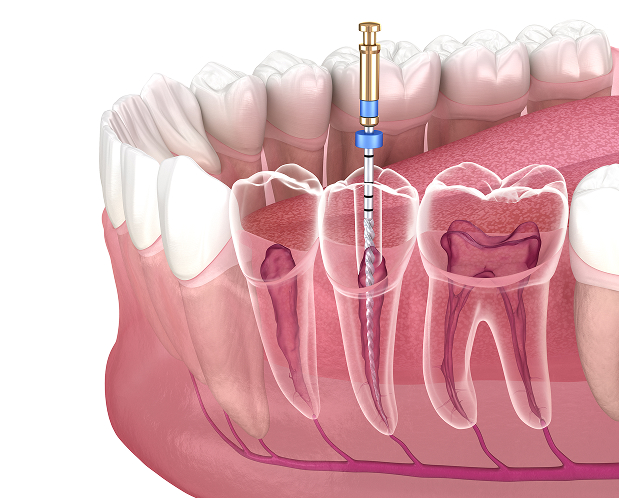What is Root Canal Treatment?
Root canal treatment is a dental procedure used to treat infection or inflammation inside a tooth, specifically within the pulp (the soft tissue that contains nerves and blood vessels). It is often necessary when a tooth is severely decayed, cracked, or affected by deep infection.
During the procedure, the infected pulp is removed, the inside of the tooth is carefully cleaned and disinfected, and then filled and sealed with a biocompatible material. A crown is usually placed afterward to restore the tooth’s function and protect it from future damage.
Root canal treatment allows patients to preserve their natural tooth, eliminate pain, and avoid extraction.
| Fast Facts | |
|---|---|
Procedure Duration | 1–2 Appointments / 30–90 Minutes |
Result Duration | 10–15 Years or Longer with Crown Protection |
Assistance | Inhouse Nurse |
Certified Products | Biocompatible Fillings & Rotary Instruments |
Accommodation | 4/5 Star Hotels |
Transportation | Luxury Hybrid Cars |







